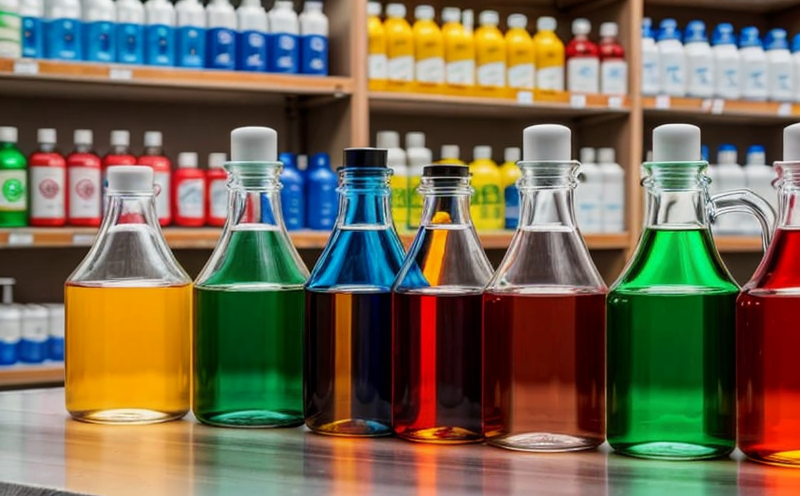Restricted substance testing for export compliance
In today's globalized market, ensuring that your textile products meet international standards is critical to maintaining a competitive edge and avoiding costly penalties. Restricted Substance Testing (RST) ensures that textiles comply with the stringent chemical regulations in place across various countries. This service is particularly important when exporting to regions like the European Union, United States, Japan, and China, where compliance with specific restricted substance lists (such as REACH, Oeko-Tex Standard 100, or GB/T 3928-2015) is mandatory.
The textile industry has seen significant growth in demand for chemical testing services due to increased consumer awareness about the health and environmental impacts of textiles. The use of hazardous chemicals such as formaldehyde, azo dyes, and heavy metals can have serious consequences if not properly managed. By conducting thorough RST, companies can ensure that their products are safe for consumers and environmentally friendly.
Our laboratory utilizes state-of-the-art equipment to perform rigorous testing according to internationally recognized standards. This includes Fourier Transform Infrared Spectroscopy (FTIR), Gas Chromatography-Mass Spectrometry (GC-MS), and Inductively Coupled Plasma Mass Spectrometry (ICP-MS). These advanced techniques allow us to detect even trace amounts of restricted substances, ensuring that your products meet the highest quality standards.
The process typically involves a detailed sampling procedure where representative samples are taken from batches of textiles. Specimen preparation is crucial and includes washing, drying, cutting, and conditioning the fabric according to specific protocols outlined in relevant standards. Once prepared, the samples undergo various analytical tests designed to identify potential restricted substances.
Our team of highly trained chemists and analysts then reviews the results meticulously, comparing them against the thresholds set by regulatory authorities. If any restrictions are found, corrective actions are recommended immediately to bring the product into compliance. This proactive approach not only helps avoid non-compliance issues but also enhances brand reputation and customer trust.
By choosing our restricted substance testing service for export compliance, you ensure that your products meet all necessary requirements before reaching international markets. This can significantly reduce the risk of product recalls or legal actions while demonstrating a commitment to sustainability and ethical business practices.
Applied Standards
- REACH (European Union): Regulations governing chemicals in the European market, including Annex XVII which lists specific substances not allowed or restricted for use.
- Oeko-Tex Standard 100: Certifies that textiles are safe and free from harmful chemicals. This standard covers all stages of production, from raw materials to finished products.
- GB/T 3928-2015 (China): Provides requirements for the physical and mechanical properties of chemical fiber fabrics.
Our laboratory adheres strictly to these international standards, ensuring that your textile products are tested comprehensively against all relevant restrictions. Compliance with these regulations is not only a legal requirement but also a testament to the quality and safety of your products.
Scope and Methodology
The scope of our restricted substance testing service includes evaluating textiles for their compliance with various international standards. The methodology involves several key steps:
- Sampling: Representative samples are collected from the batch to be tested.
- Preparation: Samples undergo washing, drying, cutting, and conditioning according to specified protocols.
- Analysis: Using advanced analytical techniques such as FTIR, GC-MS, and ICP-MS, we identify potential restricted substances present in the samples.
- Evaluation: Results are compared against set thresholds. Any non-compliance is identified and reported promptly.
This process ensures that your textiles comply with all necessary regulations before they reach international markets. We provide detailed reports outlining our findings, recommendations for corrective actions, and a summary of compliance status.
Competitive Advantage and Market Impact
- Enhanced Reputation: By ensuring compliance with international standards, your company gains a reputation as a leader in quality and safety. This can attract more customers and enhance brand loyalty.
- Avoidance of Non-Compliance Risks: Our testing service helps you avoid potential legal issues, product recalls, and fines associated with non-compliance.
- Innovation and Development: Compliance testing can drive innovation in your R&D efforts by pushing the boundaries of what is considered safe and sustainable.
- Better Procurement Practices: By working closely with suppliers who meet these stringent standards, you ensure a higher quality supply chain.
Our service not only helps you comply with current regulations but also sets the stage for future compliance requirements. This proactive approach ensures that your products remain competitive in an ever-evolving market landscape.





